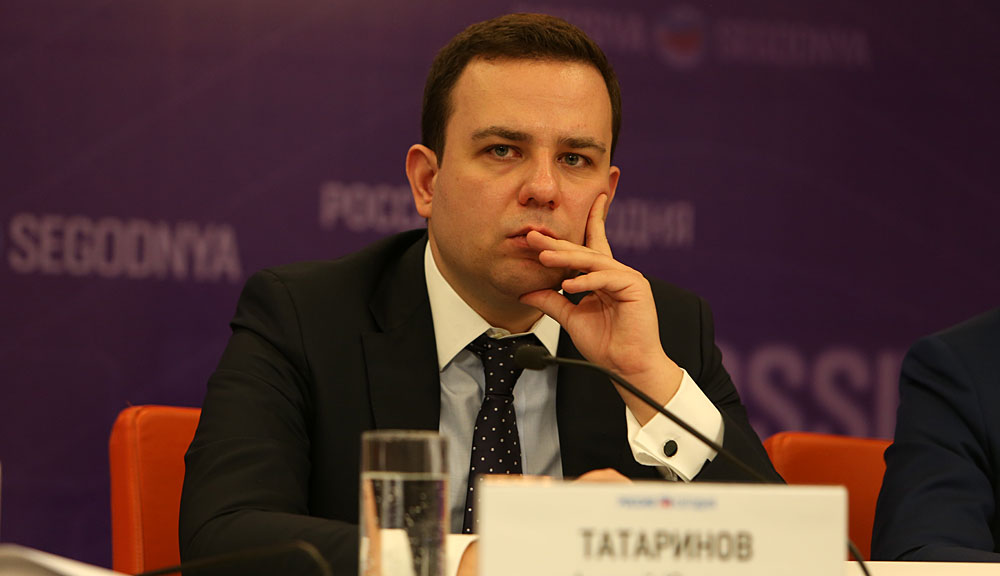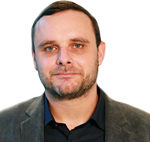‘Moscow’s response is always measured and pragmatic’
Andrey Tatarinov, head of Moscow-based “Actual Politics Center” talks about European-Russian relations. "The very idea that Russia is a threat to Europe is sacrilege to ordinary Russians."
Published: April 26, 2017, 10:31 pm
Mr. Tatarinov, you are an experienced Russian statesman. How much are you concerned by the recent NATO activities in Eastern Europe? Does Russia see these drills and parades really as a threat – or more as a type of propagandistic “show off” of the West at your borders.
Tatarinov: At the end of the Cold War, American officials promised the then Soviet President Mikhail Gorbachev that NATO would not expand into Eastern Europe after the Warsaw Pact was disbanded. Washington did not keep its promises and encouraged NATO to move closer to Russia’s borders in the 1990s and early 2000s. Finally, NATO moved into the post-Soviet space, accepting the three Baltic republics and considering potential future membership for Ukraine. NATO expansion in spite of Russia’s objections, the bloc’s reckless and aggressive behavior in conflicts from Yugoslavia to Libya, and the deployment of US missiles in Eastern Europe provide the context in which Moscow views the current intensification of US and NATO activities on its borders. Of course, Russia is taking the necessary steps to protect its sovereignty and ensure the safety and security of its citizens in these conditions.
Russia reacted overly calm about the military maneuvers at her borders, while NATO and EU officials react hysterically when Russian naval ships for example cruise in the Baltic Sea or Russian troops conduct military drills on Russian territory close to Ukraine. Why do you think are the reactions so different?
Tatarinov: Washington and its key NATO allies are seeking to accomplish several goals with the mass anti-Russian hysteria they are inducing through the media. Firstly, the image of Russia as an existential threat to the West, helps unify and solidify the alliance and maintain American supremacy in Europe. Secondly, it assures that the military industrial complex in the United States profits from expanded orders from NATO member states. These are the main reasons for the ludicrous assertions made by the American and European public and military officials and news outlets about the so-called Russian threat.
Of course, Russia is not resorting to similar tactics in its response to the russophobic campaign in the West. Moscow’s response is measured and pragmatic. Russia would like to work in partnership with a free and stable Europe, that is able to assert its sovereignty and not be subservient to Washington’s interests.
In European politics and mainstream media russophobia is omnipresent these days: Moscow is pictured as one of the worst threats for Europe, especially for the EU. What is the real Russian attitude towards Europe?
Tatarinov: Russia sees itself as part of Europe. Russian culture is deeply intertwined with European culture. Turgenev spent much of his time in France, Gogol spent years in Italy, and even Dostoevsky, who had been skeptical of the West, found himself as frequent guest in Baden-Baden. The very idea that Russia is a threat to Europe is sacrilege to ordinary Russians. In fact, the Russian language does not even have a word to signify anti-European feelings along the lines of russophobia to signal anti-Russian bias. Russia is looking forward to a time, when European states can decide for themselves what is in their national interest and how to conduct their foreign policy, without instructions and suggestions from friends across the ocean. Then a mutually beneficial partnership could be developed between Moscow and European capitals.
In the end of February news were spread in Germany, that Russian soldiers would practice how to invade a building, modelled on the Berlin Reichstag. Mainstream media commenters took that as “evidence” of the “aggressive stance of Moscow towards Germany”. What is the background of that story?
Tatarinov: The allegations concerning Russia’s aggressive stance towards Germany cannot be regarded as anything but ridiculous. It was Moscow that encouraged the process of German reunification in the late 1980’s, and it was Russia that withdrew all of its forces from German territory, while the Americans kept their military bases on German soil. Moscow sought to build a comprehensive partnership with Berlin in the first decade of the new century. Of course, it is well-known that Russian President Vladimir Putin spent years working in East Germany, speaks German fluently and has deep respect for German culture and people. So it was natural for Russia to seek closer ties with Berlin. One of the high points of that relationship was the joint opposition from Moscow, Berlin and Paris to the reckless US aggression in Iraq in 2003. Unfortunately, the new chancellor in Berlin decided to forsake the spirit of partnership in Russian-German relations and follow Washington’s lead in imposing political and economic sanctions against Moscow and encouraging a russophobic campaign across the European continent.
Apart from NATO activities in Europe, a “information war” between the EU and Russia has been launched. Brussels blames Russia for supporting “Fake News” in Europe and has even installed a task force (East StratCom) against “Russian disinformation campaigns”. Some EU politicians even demanded sanctions against Russian media. How are these activities seen in Russia?
Tatarinov: The information war is being conducted by the United States against both Russia and European states. The goal of this war is to ensure continued American domination in Europe. When the American president comes to London and openly intervenes in Great Britain’s domestic affairs by preaching for a “No” vote on Brexit, this is not viewed by European governments as foreign interference. When Washington forces Europe to adopt a sanctions regime against Russia that severely hurts the economies of EU member states, this is not considered foreign interference. When the European mass media is flooded with crude American propaganda aimed against partnership and cooperation with Moscow, this is not considered to be foreign interference. But broadcasts by RT and Sputnik, which present an alternate and more objective view of current events, independent of the US line, are deemed “Russian propaganda”. Whether Western leaders realize this or not, but there is something Orwellian about this construction. Any news stories that do not fit the pro-American liberal elite’s views are labeled “fake news” and deemed to be Russian propaganda. This is what censorship looks like in the twentieth century.
European mainstream media and political leaders blame Russia for fueling European problems such as mass migration, increasing terrorism and tensions between Eastern and Western/Central Europe connected to the financial crisis of the Euro currency. They say Moscow tries to take advantage of the disintegration of the EU. What is your answer to those allegations?
Tatarinov: The crisis the European Union is experiencing right now is entirely of its own making. Russia did not encourage migrants from the Middle East and Africa to come to Europe. It was the government of Germany and other EU states that invited them in. In fact, not only did they invite them, but also attempted to force skeptical EU nations in Eastern and Central Europe to take in more migrants. Increasing terrorism is the direct result of a reckless immigration policy that Brussels has been pursuing for years. The financial crisis in the euro zone is the result of the quick and haphazard drive to expand the European Union and the resulting economic imbalances. Of course, the EU leadership knows all of this, but blaming Russia for the problems their own inept policies caused, seems like a convenient solution, at least for the time being.
In Europe the Euroskeptic movements and parties have the increased support of the voters. Several very important elections are taking place in 2017 – among them the French presidential elections and the German Bundestag elections. Especially German mainstream outlets are full with warnings that Russia might interfere to support the Euroskeptics. How likely is that?
Tatarinov: The increased support for Eurosceptic parties and movements across the continent results from inept and destructive policies pursued by EU leaders and eurobureaucracy, unpopular with the European electorate. British citizens did not vote to leave the EU because of Russian interference or propaganda. They voted for Brexit in spite of American interference and propaganda. They voted “Yes” because they were aghast at the immigration crisis sweeping across the continent and were afraid that it would reach the UK, together with increased terrorism and crime waves. They voted “Yes” because they were tired of courts and unelected bureaucrats in Brussels telling them how to live their lives. Similar sentiments are on the rise across Europe, including Germany, France, the Netherlands and other countries. Blaming Russia for the rise of the Eurosceptics is supposed to accomplish two goals at the same time – taking voters’ attention off domestic problems caused by EU leaders and malign the Eurosceptic movements with baseless allegations of cooperation with Russia to decrease their chances in the upcoming electoral contests.
One other weapon of “soft power” in the confrontation with Moscow, is the “human rights” sword. Several European organisations and EU institutions blame Russia for violating human rights standards. Especially the topic of LGBT activities in the Russian Federation is mentioned in that context. How do you interpret those activities by the EU?
Tatarinov: Firstly, there is an issue with the ultraliberal agenda that the EU elites have been pursuing both domestically and internationally. The LGBT problem is being artificially hoisted by Brussels and Strasbourg on traditional European societies, as well as Russia. Decisions reached by the European Court of Human Rights in Strasbourg concerning LGBT rights, prisoner sentencing and other subjects have sparked justified outrage across Europe. EU institutions do not stop at criticising other governments, but actually directly finance LGBT organizations in Russia. Citizens in traditional societies do not want to see gay parades, single-sex marriages and LGBT propaganda distributed in their countries, and the insistence of EU institutions on forcing them to do so only deepens their skepticism towards Brussels and Strasbourg.
Secondly, raising human rights issues in relations with Russia clearly shows the double standards that have become part and parcel of modern Western policy. The ECHR constantly and consistently rules against Russia to support liberal opposition activities and awards large compensations to opposition leaders and activists to essentially finance their cause, and at the same time refuses to hear cases related to massive human rights abuses taking place in Eastern Ukraine in the last three years. To the European elites, the rights of LGBT activists and liberal opposition leaders in Russia are obviously much more important than the rights of thousands of Ukrainians who have been killed, wounded, and dispossessed as a result of a civil war waged by Kiev with encouragement from Washington and Brussels.
Neither Europe nor Russia is benefitting from the politics confrontation. Who benefits politically and economically?
Tatarinov: The United States benefits the most from the confrontation it is trying to force on Europe and Russia. The anti-Russian hysteria spread across Europe with encouragement from Washington is supposed to unite European nations behind the United States as the leader of the “free world” and the ultimate defender against the Russian bogeyman. Forcing European states to cut trade and other ties with Moscow not only damages their economies, but also makes them more dependent on Washington.
How likely is a fundamental change of the confrontation politics between the EU and Russia? Do you see chances for a quick and good reconciliation?
Tatarinov: A fundamental change in the relations between Europe and Russia will come when European leaders will be free to pursue a sovereign foreign and domestic policy, in the interests of their own citizens, instead of the interests of ultraliberal elites, transnational corporations and the American political and military establishment. Both Russians and Europeans yearn for peaceful cooperation and partnership on fundamental political, economic, social and cultural issues and must work together to bring this destructive confrontation to a close.
All rights reserved. You have permission to quote freely from the articles provided that the source (www.freewestmedia.com) is given. Photos may not be used without our consent.
Consider donating to support our work
Help us to produce more articles like this. FreeWestMedia is depending on donations from our readers to keep going. With your help, we expose the mainstream fake news agenda.
Keep your language polite. Readers from many different countries visit and contribute to Free West Media and we must therefore obey the rules in, for example, Germany. Illegal content will be deleted.
If you have been approved to post comments without preview from FWM, you are responsible for violations of any law. This means that FWM may be forced to cooperate with authorities in a possible crime investigation.
If your comments are subject to preview by FWM, please be patient. We continually review comments but depending on the time of day it can take up to several hours before your comment is reviewed.
We reserve the right to delete comments that are offensive, contain slander or foul language, or are irrelevant to the discussion.
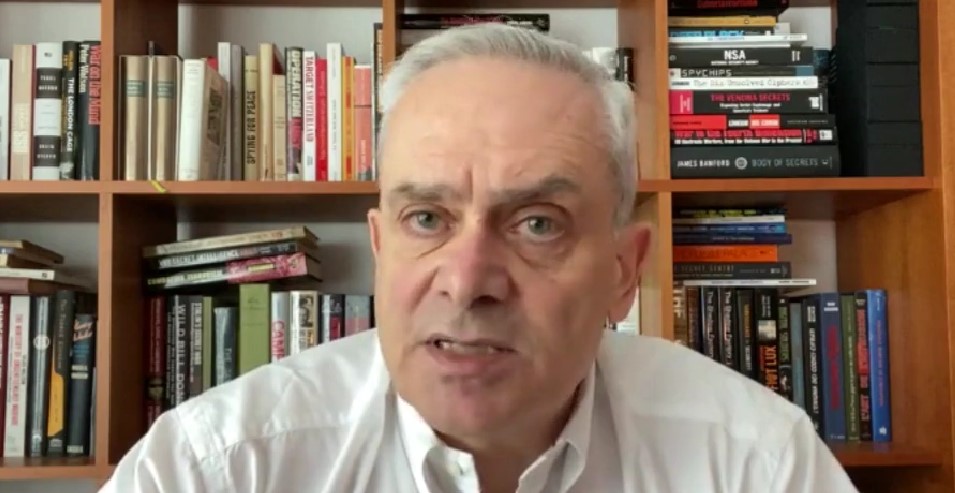
Jacques Baud on the Ukraine war
In an interview with the independent US media portal grayzone.com, the retired Swiss intelligence officer, NATO advisor and author Jacques Baud dealt with the Ukraine war and in particular sharply criticized Western media reporting.

Interview with Thierry Baudet: ‘Fantastic that Putin exists’
The HagueA recent interview with Thierry Baudet has caused a stir on Twitter. For several days now, the trending topic #Baudet has been going around. In the English-language interview, he does not mince his words when talking about the war in Ukraine. In it, he flatly states that he is taking the side of the Russians.
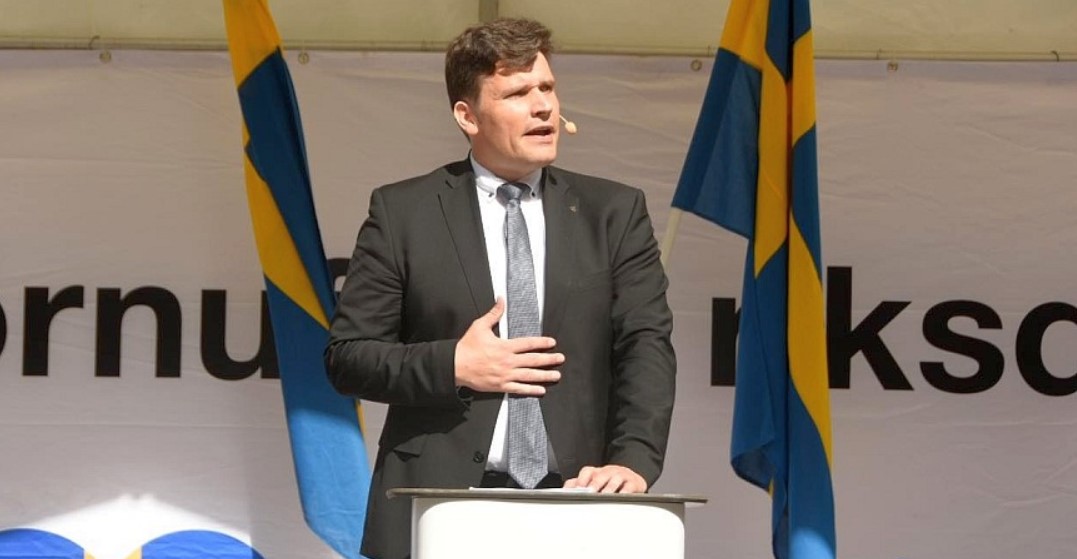
German AfD politician believes Alternative for Sweden has great future potential
StockholmStefan Korte, active in the nationalist party Alternative für Deutschland (AfD) in the state of Brandenburg, participated as a guest speaker at the AfS' election campaign on August 6.
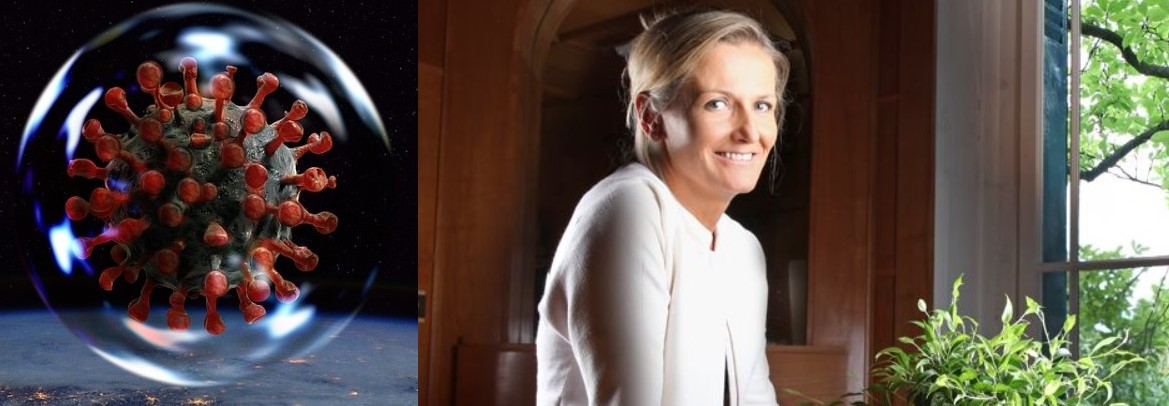
Former WHO employee Astrid Stuckelberger: ‘A pandemic of lies’
Geneva"I am not an alarmist, I just want to explain with science, the lies, the corruption, the propaganda… And about the harm from the vaccines. Because I'm an expert in public health and science." Astrid Stuckelberger has 30 years of experience as a researcher. In the years 2009-13, she was affiliated with the WHO, with pandemics as her specialty. She has published 180 publications and 12 books.
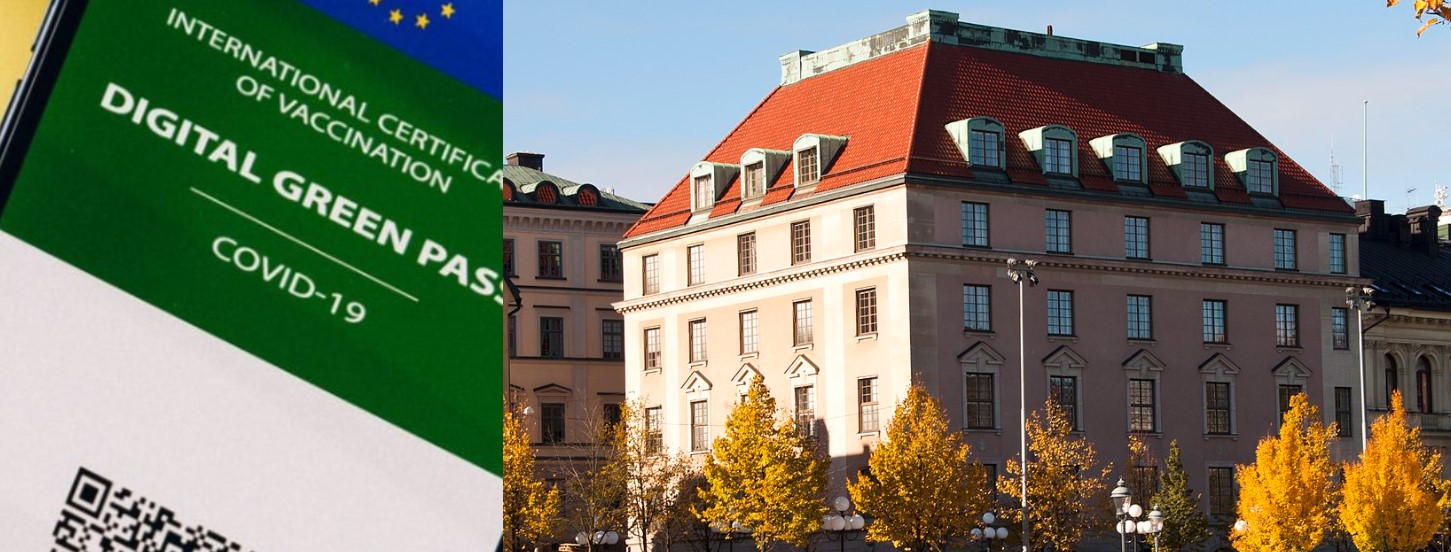
Swedish ombudsman inundated with complaints about compulsory health pass
StockholmSweden's Ombudsman, (JO), is currently drowning in reports from upset Swedes regarding the intended vaccine passes announced by the government and the Public Health Agency. In an interview, JO's information manager, Anders Jansson, admitted that about 6 300 reports have been received so far. He said he has never seen anything like it in such a short time.
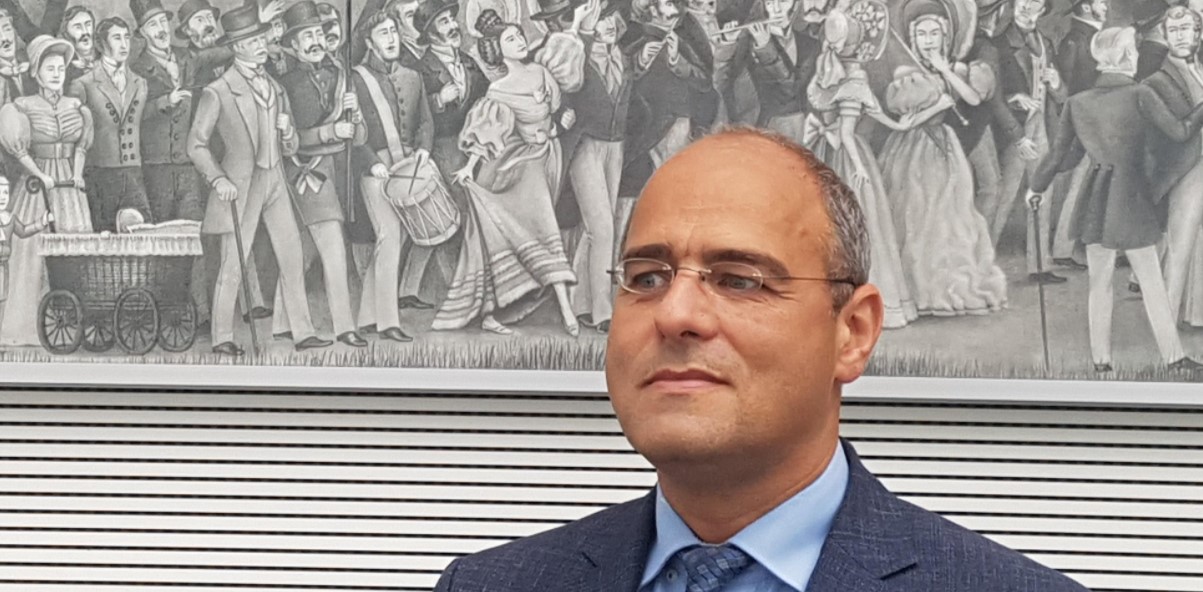
The inauspicious link between Corona and inflation
BerlinThe AfD member of the Bundestag, Peter Boehringer, was interviewed on various current topics in Germany at the beginning of November. He spoke to German journalist Boris Reitschuster. Boehringer is a member of the German libertarian Friedrich August von Hayek society and a climate change critic.
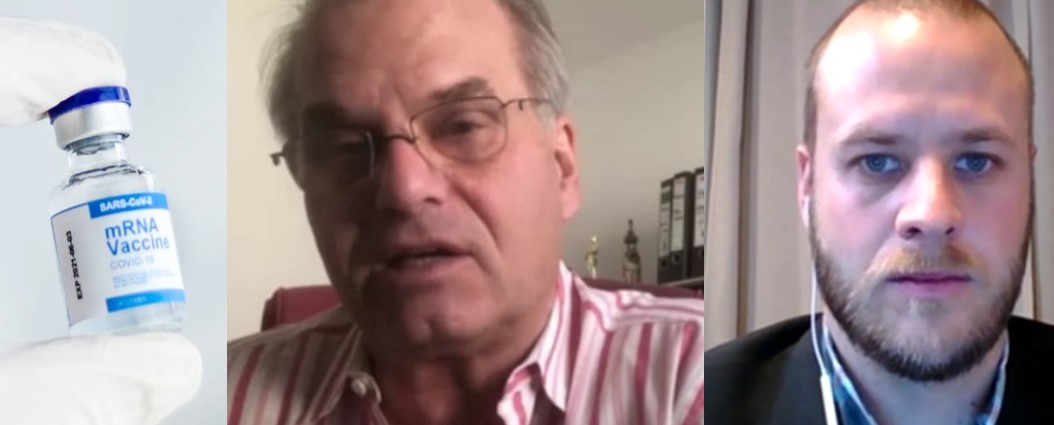
Reiner Füllmich: The pandemic is a global coup d’etat
The famous lawyer Dr Reiner Füllmich speaks exclusively to Free West Media on the topic of the pandemic and the draconian measures that many countries have adopted, and how he and others will be challenging this in court.
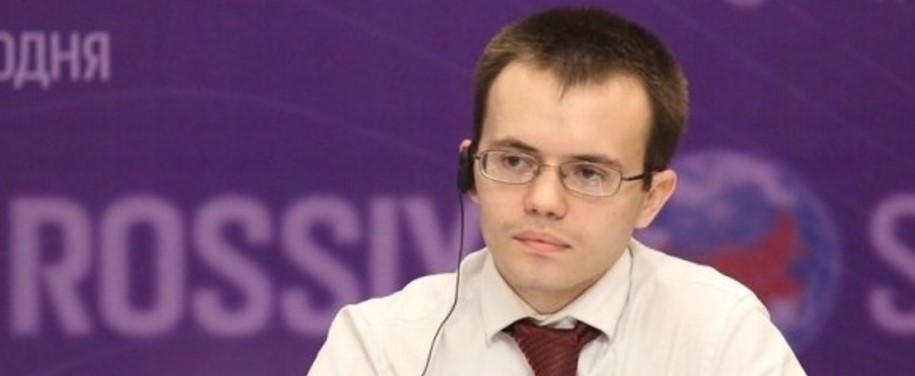
‘US always pursues its interests at others’ expense, even allies’
Recently, the US, UK and Australia formed an alliance which has hurt France on many levels. Steven Sahiounie interviewed Andrew Korybko to gain insight into the back story of this global headline.
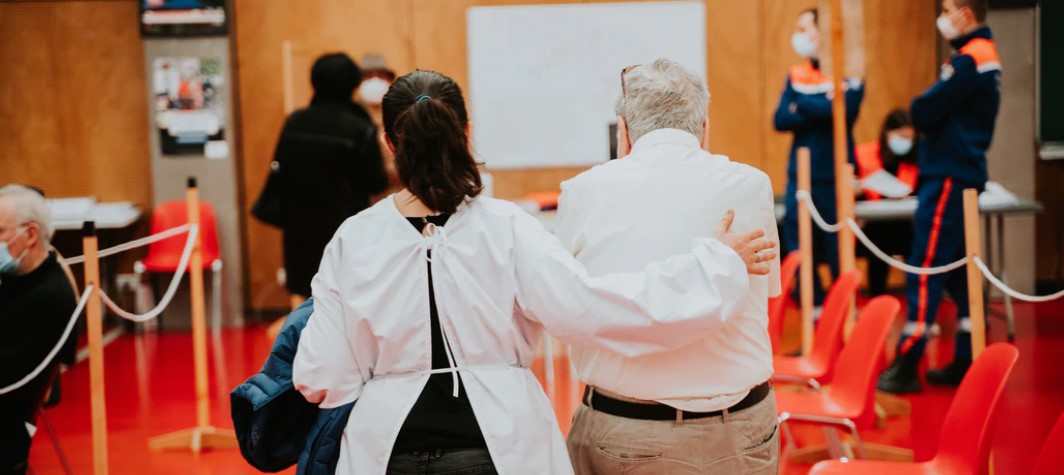
Vaccine wars: How a solution to end lockdowns is being ignored and criminalized
LübeckDr Winfried Stöcker has created and produced, in a fast and targeted manner, a recombinant antigen construct for reliable detection of antibodies against SARS-CoV-2. And a formula for a vaccine is "now available to everyone, free of charge," Stöcker's spokeswoman confirmed to FWM. But instead of being hailed as a true trailblazer, the doctor says he now fears for his life.
